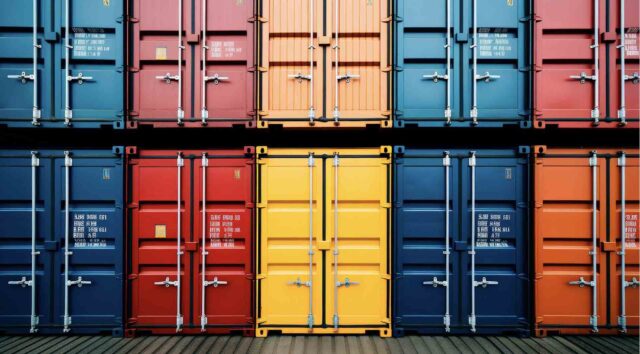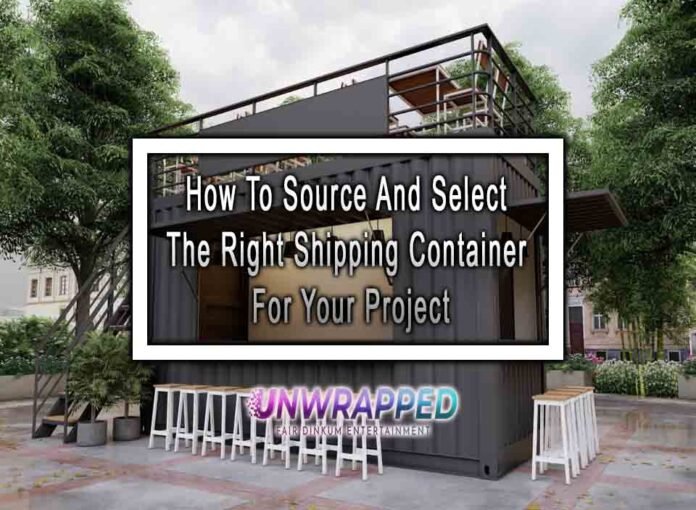A shipping container is a portal to boundless possibilities, waiting to be transformed into your next big dream.
Whether you envision a sun-drenched artist’s studio, a mobile haven for your culinary passion, or an off-grid sanctuary amidst the whispering pines, choosing the right container is the cornerstone of the success of your project.
This guide will equip you with the knowledge to help you find and pick the right shipping container and so on that suits your needs. Read on to learn more.
First, Know Your Needs To Better Know Your Perfect Shipping Container
Before going on the search for your project’s shipping container, it’s best that you first identify what your needs are.
Do you need a brand-new shipping container to ship your goods overseas? Or do you need a preowned shipping container to serve as your primary medium for your tiny home project?
When you know what your needs are, you’re able to do a more specific search – this saves you time, effort, and so on. Consult sites such as https://australiaunwrapped.com/ for they feature reliable information about shipping containers that’ll aid your search.
Choose Between New Or Preowned Shipping Containers
New or used shipping containers – which one should you pick?
Brand new containers come fresh from the shipyard. They come equipped with the latest product safety certificates, making them ideal for international escapades. However, new shipping containers’ hefty price tag might leave a hole in your pockets.
Used containers, on the other hand, are a more budget-friendly option. Nonetheless, beware of hidden issues. Inspect for dents, rust, and structural integrity. A good used container can be a sturdy and cost-effective choice for your project if you do your due diligence before making a purchase.

Pick Your Shipping Container Supplier: Should You Go For A Local Or International Company
Now, it’s time for you to pick your shipping container supplier. There are numerous shipping container suppliers and online marketplaces, each offering a unique harbor of options.
Local shipping container supplies is your go-to if you’re looking to do an on-site inspection of your shipping container for your project.
Meanwhile, international companies allow you to choose from a greater number of shipping container options sans physical inspection. Don’t forget to research the company’s reputation and request detailed photos and inspection reports before making a purchase.
Seek Financing For Your Shipping Container Purchase
Buying a shipping container will entail a large sum to your bank account. Whether you’re going to go for a brand new or already used shipping container, it’s best that you plan on how you’re going to finance such a major purchase.
For starters, you can save up money by setting aside a fixed amount monthly so that you can hit your target before the date of your purchase.
Nonetheless, if you need instant financing, you can look into loans. If you’re using the shipping container for your business, you can apply for a business loan or an equipment financing option. On the other side of the coin, you can utilize a personal loan or multipurpose loan if you’re planning to use your shipping container for non-business projects.
Negotiate, Negotiate, Negotiate
Negotiation is key to securing the best price for your container. Research market rates, compare quotes, and don’t be afraid to haggle if you’re buying a preloved shipping container. Consider factors like delivery costs, payment terms, and warranties as well.
Prepare All The Paperwork For Your Shipping Container
Once you’re ready to make your purchase, make sure that you have all the paperwork needed prepared and ready to go. These files may include the deed of sale, receipts, and so on.
In addition, there may be special laws governing shipping container ownership in your area. Make sure that you keep these in mind when preparing for the paperwork. Apply for the necessary permits, pay for all the fees, and the like to avoid any legal problems later on.
Be Mindful Of The Various Transportation Considerations Involving Shipping Containers
Different vessels require different modes of transport. Trucks might navigate city streets with ease, while trains offer long-distance hauls for larger containers. Barges could be your option for coastal transport, while ships might be necessary for international-bound shipping containers.
Take into consideration multiple cost factors, permits needed for oversized cargo, and potential complications like road closures or unexpected storms. Choose your transportation mode wisely, ensuring your container arrives at its destination safe and sound.
In Conclusion
Sourcing and selecting the right shipping container for your project can be a headache to those who are ill-equipped for the job. Luckily, the points above aim to help would-be shipping container owners like you to navigate the process with little to no hassles. All the best in your shipping container project.











